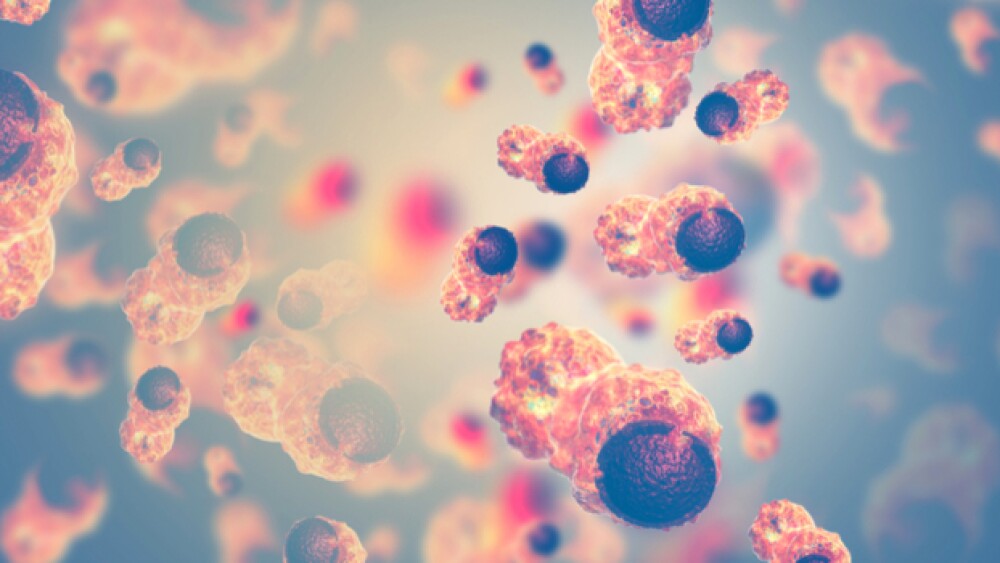Accelerated Evolution Biotechnologies(AEBi)’s claims to have found a cure for cancer are, appropriately, being met with global skepticism. Learn more about it here.
Here are some recent claims of AEBi’s on their cure for cancer.
Accelerated Evolution Biotechnologies (AEBi)’s claims to have found a cure for cancer are, appropriately, being met with global skepticism.
The Israeli company, founded in 2000 in the ITEK incubator in the Weizmann Science Park, developed the SoAP technology platform. This is described as a functional Phage Display. It allows the company to develop drugs to a variety of diseases, including a cure for cancer. The company’s website appears long on promises but very short on what the SoAP technology actually is. A proof-of-concept study on the site describes the effects of several peptides on the phosphorylation levels of human EGFR in cell lines.
AEBi’s Claim about Cure for Cancer
The company calls this treatment the MuTaTo (Multi-Target Toxin). It is a family of molecules that have peptides that interact with a range of proteins expressed by cancer cells. The company’s chief executive officer, Ilan Morad, claims the peptides have the ability to target several proteins at the same time. “We create a multiple attack on cancer,” he told The Times of Israel. “Think of the arms of an octopus. The octopus, in this case, is the molecule, and at the end of each arm there are peptides that interact with the proteins and inhibit their action.” That interaction allows “toxic peptides” attached to the “octopus” to penetrate the cancer cells and kill it from the inside.
The company’s chairman of the board, Dan Aridor, recently told the Jerusalem Post, “We believe we will offer in a year’s time a complete cure for cancer.”
It’s difficult to know exactly what he’s basing such a claim on. The company, to date, has only tested the treatment on mice. AEBi hasn’t published a clinical data showing it works in humans.
In fact, Morad told The Times of Israel that it hadn’t published its research in scientific journals because it “can’t afford” to do so. However, preclinical trials have been “very good.”
He went on to say, “We are working on a complete cure for cancer. We still have a long way to go, but in the end we believe we will have a cure for all kinds of cancer patients and with very few side effects.”
It’s really difficult to know whether Aridor’s statement was just over-confident business-speak or a ploy to gain the attention of the public or the potential interest of research partners. It’s a remarkably audacious statement for a preclinical trial whose data has not been published in a peer-review scientific journal.
Morad indicated that the company hopes to begin human clinical trials to check the efficacy of this cure for cancer within a year or so and to know if it can raise the funds. The company claims that the family of molecules it has developed have been effective in treating human cancer cells in a laboratory and in mice, and has the potential to target lung, colon, and head-and-neck cancers.
Leonard Lichtenfield, deputy chief medical officer for the national office of the American Cancer Society, told the Times of Israel, that the company had “an interesting approach to interfering with the ability of cancer cells to function,” but its research has “apparently not been published in the scientific literature where it would be subject to review, support and/or criticism from knowledgeable peers.”
In a blog post, Lichtenfield wrote, “We all have hope that a cure for cancer can be found and found quickly. It is certainly possible this approach may work. A cure for cancer? Not so fast.”
Ben Neel, director of Perlmutter Cancer Center at NYU Langone Health, told The New York Post that “cancer is multiple diseases, and it is highly unlikely that this company has found a ‘cure’ for cancer any more than there is a single cure for infections.” It is more likely, he added, “this claim is yet another in a long line of spurious, irresponsible and ultimately cruel false promises for cancer patients.”





